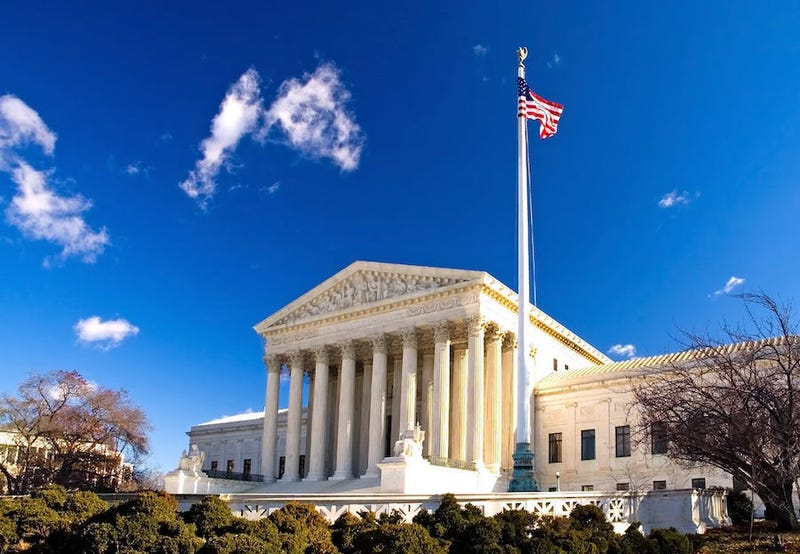
NEW YORK (1010 WINS) -- The Supreme Court has ruled to uphold the scope of federal sex offender registration law in case testing 'nondelegation doctrine' on Thursday.The 2006 Sex Offender Registration and Notification Act requires sex offenders to register with the National Sex offender registry and also update their registration when they travel or move.Thursday's 5-3 opinion turns away efforts to renew the "non-delegation doctrine" of the Constitution which is a legal theory saying that Congress can't delegate its legislative power to other branches without giving the proper guidance.Some conservatives hope to use the principle in order to cut back on the power of federal agencies.A Maryland man, Herman Gundy, argued that Congress had unlawfully left it up to the attorney general to determine the law's application as it applies to those who were convicted before its enactment.The court disagreed in this case, saying that when Congress passed the law, it had properly transferred its power to another branch of government."Indeed, if SORNA's delegation is unconstitutional, then most of Government is unconstitutional -- dependent as Congress is on the need to give discretion to executive officials to implement its programs," Justice Elena Kagan wrote in the majority opinion.Gundy pled guilty to sexual assault with a minor in Maryland in 2005, before SORNA was enacted.
After his release in 2012, he failed to register in New York and was later charged with violating the law. Gundy challenged his indictment, arguing in part that Congress had delegated too much power to the Attorney General and was in violation of the "nondelegation" doctrine of the Constitution.The Trump administration argued in favor of the federal law, noting that Congress was not delegating its authority, but guiding the attorney general guidance on how to apply the law, because it knew that there would be practical issues for the executive branch to address."Although the Court did not revisit the nondelegation doctrine in today's ruling, all four of the conservative Justices who participated suggested that they have concerns with that principle, and want to revisit it in a future case," CNN reports.
